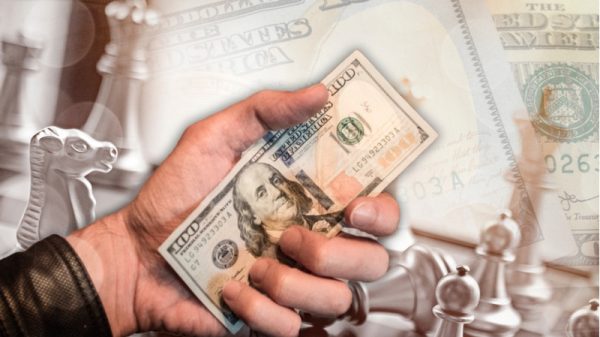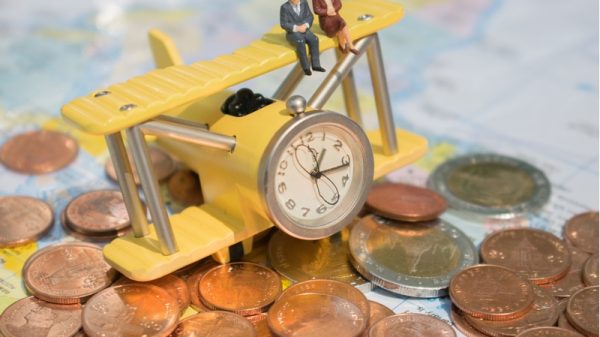WILKES-BARRE, Pa. — On the eve of her debate with Donald Trump, Kamala Harris’s advisers were anxious. Within a deeply calcified electorate, her poll numbers appeared to be plateauing. She was facing one of the most experienced presidential debaters in history. Beltway pundits were questioning whether her initial burst of momentum was evaporating.
But the vice president’s aggressive performance in Philadelphia electrified her grassroots supporters and helped her notch the coveted endorsement of Taylor Swift as she raised an eye-popping $47 million in the 24 hours after the debate.
Her fans filled arenas in Greensboro and Charlotte, N.C., where they queued up outside for hours before she arrived Thursday — shimmying to the hip-hop beats of a DJ near the magnetometers and donning bright green stickers bearing Harris’s shorthand for turning the page on the Trump era: “We’re not going back.”
As Harris focused this week on expanding her potential paths to victory in November — targeting North Carolina, where Barack Obama was the last Democratic presidential candidate to win the state in 2008 — the first post-debate poll suggested a small but potentially promising post-debate bounce.
Still, in every speech since Tuesday’s faceoff, the vice president has warned her supporters that the race will remain close until the final days. She and her advisers have repeatedly outlined the hurdles for Democrats — from Republican efforts to restrict the counting of certain ballots to the hundreds of millions of dollars that Trump-aligned super PACs plan to spend trying to define Harris in the most negative light.
With early voting slated to begin within days, Harris has toggled this week between events aimed at activating her core supporters — including Black voters in Charlotte and Greensboro — and a push to drive up her margins in tougher territory for Democrats such as Johnstown, Pa., a tiny blue dot in western Pennsylvania surrounded by redder areas that have favored Trump in recent elections.
“We know ours will be a very tight race until the very end. We are the underdog. Let’s be clear about that,” Harris said in Greensboro. “We have hard work ahead of us, but we like hard work. Hard work is good work.”
Headed into the debate, polls showed a dead even race between Harris and Trump. But a post-debate poll from Reuters/Ipsos showed Harris leading Trump among registered voters 47 percent to 42 percent. About 49 percent of respondents said Harris “seemed like someone who would listen to me and understand my concerns,” compared to just 18 percent who viewed Trump that way. (The poll’s margin of error was plus or minus three percentage points for registered voters).
The Harris campaign sees that theme as a critical avenue for persuading voters who still don’t know much about the vice president or are just tuning into the election. In the debate, in speeches and ads this week, the Harris campaign has been trying to drive the message that the vice president would strive to be a president for all Americans while casting Trump as out for himself.
Her newest ad Friday featured lines from her debate closing statement where she told viewers that during her career as a prosecutor, she never asked a victim or a witness whether they were a Republican or a Democrat. “The only think I ever asked them: ‘Are you okay?’ ” she says in the featured clip. “’That’s the kind of president we need right now. Someone who cares about you and is not putting themselves first.’”
Harris will drive that same message Friday as she tries to reach the many blue-collar voters who have favored Republicans in recent years, with visits to Johnstown — where she is meeting privately with union leaders — and Wilkes-Barre, a former coal town with a heavy union presence in Pennsylvania’s Luzerne County.
Obama won Luzerne County by 9 points in 2012, but Trump then claimed victory in the county with a nearly 20-point margin. Obama similarly narrowly won Cambria County in southwestern Pennsylvania in 2008 after campaigning in Johnstown with the message that special interests and lobbyists in Washington “aren’t looking out for you.” Eight years later, Trump crushed Hillary Clinton there.
On the trail, Harris has been feeding off the energy of her crowd as she highlights some of her stronger moments during the debate. In Charlotte, as she delved into Trump’s answer on whether he had a plan to replace the Affordable Care Act, some in the crowd interrupted her by shouting “Concepts! Concepts!”
“Oh, you all you watched the debate?” Harris said with a laugh to uproarious applause. “Concepts. Concepts. No actual plan — concepts,” she continued. “Understand what’s at stake on that. Forty-five million Americans are insured through the Affordable Care Act and he’s going to end it based on a concept.”
She also noted that Trump dodged a question about whether he’d sign a national abortion ban.
“Donald Trump refused to say that he would veto a national abortion ban. You remember that?” Harris asked. “He refused to answer that question, refused to answer that question. Well, I’m gonna tell you, when Congress passes a bill to restore reproductive freedom, as president of the United States, I will proudly, proudly sign it into law.”
Harris’s ready supply of cash has allowed her campaign to be nimble on the airwaves. Since her unexpected entrance into the race July 21, Harris’s effort has proved to be a fundraising juggernaut.
The $47 million that she raised in the 24 hours after the debate followed the news that her campaign raised $361 million in August, according to aides. That was nearly three times as much as the $130 million brought in by Trump’s coordinated effort.
Harris’s campaign said it entered September with $404 million in cash to spend compared with $295 million in cash for the Trump campaign.
But Jen O’Malley Dillon, the Harris-Walz campaign chair, wrote in a recent memo obtained by The Post that Democrats are facing structural hurdles that “will require us to continue aggressively raising money.”
She argued that the electoral college map this cycle benefits the Republican ticket that predicted the margins will be “razor-thin” in the battleground states.
“Every single battleground state is close, so we need to compete aggressively in every state in order to build a pathway to 270 electoral votes,” O’Malley Dillon wrote. “Playing in every battleground requires significant resources — for offices, organizers, TV ads, and other investments that keep these states in play.”
She argued that high-dollar donors such as Timothy Mellon will continue to seed pro-Trump super PACs with hundreds of millions of dollars that will be devoted, in part, to attacking Harris on the airwaves.
“New, billionaire-funded soft money groups are springing up at a rapid pace,” she wrote. “We have to keep our foot on the gas.”
Patrick Svitek contributed to this report.



























